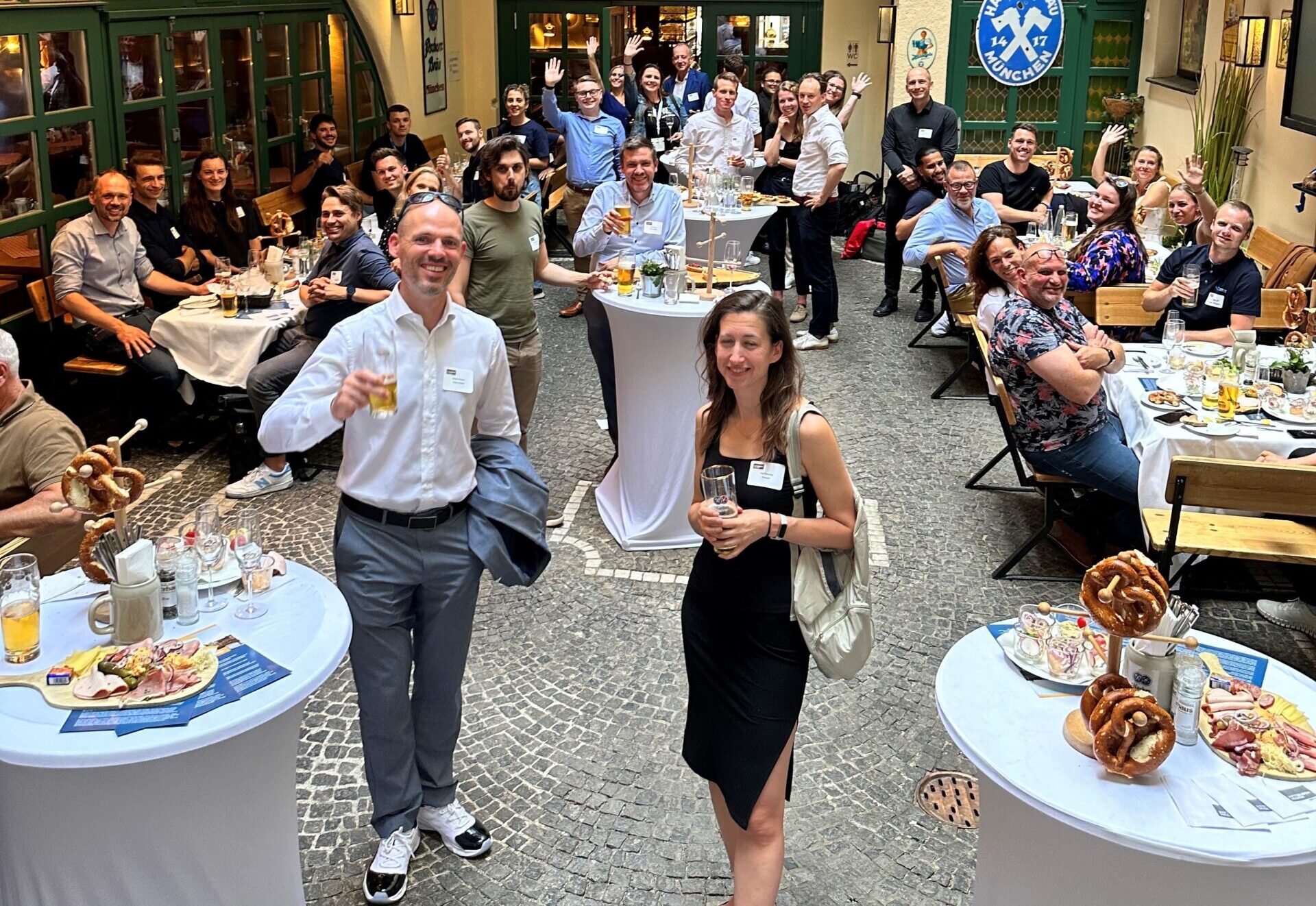As European firms and entrepreneurs in the technology sector look to gain footholds in North America, Pittsburgh has emerged as a prime location to do business.
The differences between doing business in the United States and in Europe can be tricky to navigate, said Marek Hajn, cofounder of PocketSquare Ventures, a consulting firm that helps European companies and startups come to North America — but Pittsburgh stands out as an option worth the endeavor.
Entrepreneurs say a mix of location and culture is what attracts them to this Rust Belt city as a starting point.
“The pandemic showed [businesses] that being oriented to just the European market, or even worse, just one market like the Czech Republic or Poland, could be a deal breaker,” Hajn said.
Europe has lagged behind the United States in the availability of venture capital for startups, according to the International Monetary Fund. That’s due to the risk aversion of large banks and a “fragmented economy and financial system,” the UN agency said, though European VC is reportedly picking up as investors become more aggressive.
Pittsburgh, meanwhile, saw an uptick in venture capital last year, despite the second quarter of 2024 experiencing a dip. Overall, startups raised $3.12 billion in 2023, according to a report from Ernst & Young and Innovation Works.
East Coast-Midwest combo has broad appeal
Pittsburgh offers a few benefits to companies that want to relocate, according to Hajn and his business partners, Greg Caprara and Robin Zoufalik.
Hajn – who came to Pittsburgh 10 years ago while working for a Czech cybersecurity firm – sees the city sitting on the edges of the East Coast and the Midwest, thus taking characteristics of both regions.
“I’ve seen Boston, New York and Los Angeles, and Pittsburgh is just a much more personal place to do business.”
Greg Caprara, Certantum Strategies
The Midwestern influence means people are friendly, while the East Coast mindset brings openness to new opportunities and collaboration.
The city’s size is also helpful. It isn’t so big that it’s difficult for a company to get noticed, like other tech hubs.
“I’ve seen Boston, New York and Los Angeles, and Pittsburgh is just a much more personal place to do business,” said Caprara, also the owner of Certantum Strategies.
Pittsburgh’s well-established tech reputation also pulls in outsiders because they know there will be opportunities to make strong connections.
There are resources available to European companies when they relocate to Pittsburgh, said Zoufalik, who is an honorary consul to the Czech Republic.
“We’re probably considered a second-tier city,” Zoufalik said, but “when you come to robotics or cybersecurity or any of those large emerging industries, we’re right there.”
Top industry and academic presence proves lucrative
The presence of large research universities with active labs that turn out skilled graduates also helps, Hajn and Caprara said.
More than that, it is the openness to collaboration and growth among the city’s tech sector that makes the presence of the universities an economic driver, according to Hajn.
“It comes down to the mindset and environment,” Hajn said, “and if that is business-oriented, business-minded, and open to do business together, those other resources like universities, research, industries, whatever else, come to the plate.”
Because of PocketSquare’s Czech connections, the firm works closely with businesses located there. For example, Zoufalik works specifically to bring Czech business delegations to Pittsburgh so they can see what the city offers.
Like in Pittsburgh, technology development is booming in the Czech Republic, particularly in the cybersecurity, software development and space sectors, per Zoufalik. Plus, many residents have affection for the United States going back to World War II, said Zoufalik, who was born in the Czech Republic and speaks Czech.
“The attitude of democracy, capitalism, that’s a very strong feeling in Czechs,” he said.
Tailoring the sales message for a different culture
European companies sometimes struggle to acclimate themselves to the American business environment.
Hajn’s PocketSquare Ventures aims to help companies do the “homework” they need to determine whether the United States is a good fit. Some companies assume that since Europe and the United States have cultural similarities, European companies will thrive here. That isn’t always the case.
Much of Caprara’s work involves helping companies – both American and foreign – learn how to tailor their message to their audience.
“In America, we buy benefits, we don’t buy features. In a lot of tech companies we work with, they’re accustomed to selling features, not benefits,” Caprara explained.
The difference comes in how a product is marketed. In Europe, a car’s horsepower or stopping distance is what buyers care about; in the United States, consumers want to know how safe or comfortable the car is.
Pittsburgh orgs also travel to Europe to spread interest
Pittsburgh already is home to more than 400 foreign-owned firms, employing more than 55,000 people in southwestern Pennsylvania, according to Phil Cynar, spokesperson for the Allegheny Conference on Community Development and its economic development organization, the Pittsburgh Regional Alliance.
Between 50 and 60 foreign-owned firms contact Pittsburgh Regional Alliance annually, looking for information about the region, according to Cynar.
PRA typically provides “economic research, data, access to talent partnerships, information about funding opportunities for development and site visit planning and execution,” Cynar said in an email.
The PRA also visits potential investors and partners. Later in August, representatives of PRA will travel with the Pittsburgh Symphony Orchestra on its European tour to make business connections, including to Dortmund, Germany.
“This city and Pittsburgh share many similarities in terms of an industrial past and a future focus on tech and innovation,” Cynar said, “especially AI.”







